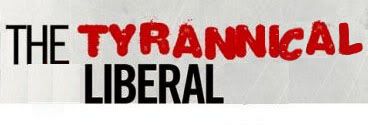 |
(with due respect to Mr. Kalb)]
I've posted various excerpts from Jim Kalb's book The Tyranny of Liberalism: Understanding and Overcoming Administered Freedom, Inquisitorial Tolerance, and Equality by Command [here, here, here and here], and some modest discussion, but I strongly recommend getting the book itself here.
Here's another excerpt (pp100-102):
Liberal Identity
[T]here is of necessity a conception of identity that grows up and takes hold of liberal society, if only because we can think about ourselves and our actions only by reference to what we are. The effect is that liberalism replaces strong and stable identities with weak and problematic ones. As always, we define our identity by reference to common goods our community recognizes. If I say I am American, the claim is insignificant unless Americans are united by something they recognize collectively as good. In liberal society, however, the only thing recognized in common as a substantive good is the goal implicit in all individual desire: the ability to get what one wants. That ability is most readily recognized in the form of money, power, and success, so liberalism turns society into an assembly of individuals related by those things.
A liberal world is one in which the authoritative social reality, the thing by reference to which we are what we are, is a hierarchy of money, power, and influence that excludes all substantive values and so is strictly quantitative. We are allowed public recognition simply as employees and consumers, as nodes in a universal network of production and consumption, individuated and ranked by organizational charts, bank balances, and consumption choices. Under such conditions we lose substantive connection to others. Social and personal identity become hierarchical or quantitative, and self-realization becomes the pursuit of financial and hierarchical superiority or conspicuous consumption.
To the extent systemic imperfections allow traditional identities to have an effect, our identity as employees and consumers is supplemented by the sole identities liberal society recognizes as a legitimate alternative: oppressor, victim, or the good liberal who supports the system in its efforts to perfect itself and us in accordance with its own principles. The hedonism and careerism of advanced liberal society is thus supplemented by resentment, guilt, and a perverse co-opted idealism. The overall effect is that liberal society is pervaded by an obsession with money, power, position, and enjoyment corresponding to its technocratic hedonism - which it must disguise and deny because of its egalitarian moralism. That obsession is all the more fascinating because of its irrationality, emptiness, and radical opposition to proclaimed morality. It is experienced as demonic and obscene, as a constant temptation to oppression and source of vicitmization. It returns us inwardly to a primitive state in which there is no distinction between power and the good, the accursed and the sacred, in which the fundamental spiritual problem is separating ourselves from the evil to which we are bound and by which we are fascinated, and the necessary response is denying it in ourselves and transferring it to another so that it can be driven out in the person of the scapegoat - the man who rejects freedom and equality, the "greedy," the "hater," the "bigot," the "extremist," the "fundamentalist."
That scapegoating creates an almost metaphysical inequality between those who think and feel correctly and are counted as part of the moral community, and those who do not and are not so counted. The resulting hatred and contempt for those counted as bigots serves a necessary function. It gives solidarity to a social order that lacks sustaining goods in common and so needs an enemy to define itself. And it provides an irrefutable justification for the rule of the class that defines correct though. Since incorrect thoughts are quite common among the people at large, the actual people need be counted as part of the political people, and their desires and views treated as legitimate, only to the extent they support the regime and its principles. The position of the ruling class thus becomes impregnable.